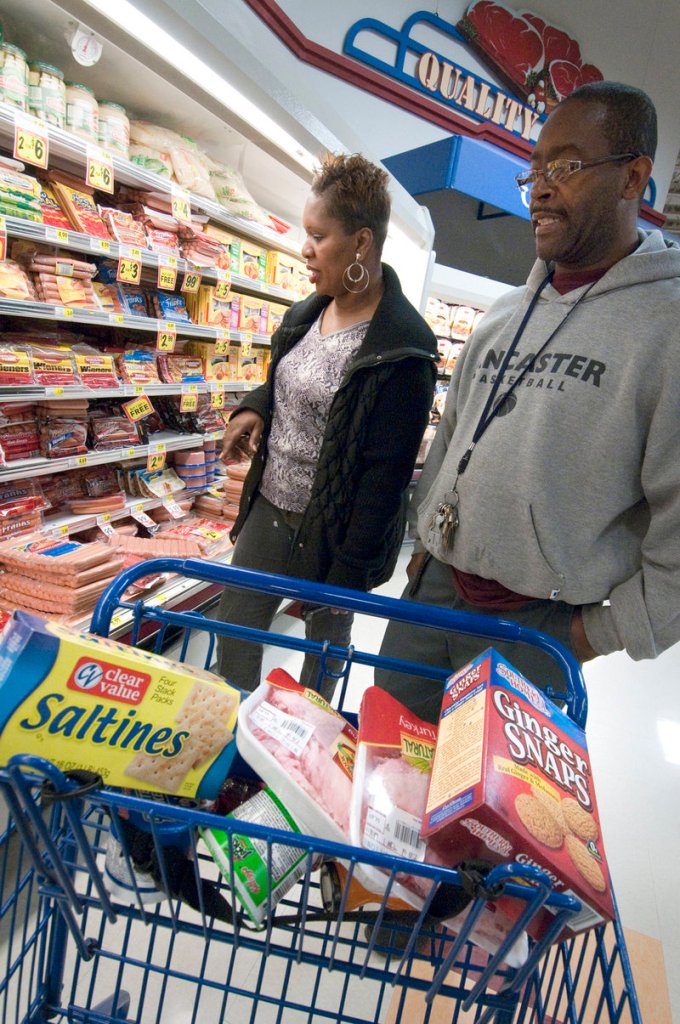CHARLOTTE, N.C. – Even as the economy shows signs of recovering, local retailers are expanding their selection of store brands and working to persuade more customers to try — and stick with — their products.
Store brands have been around for decades, offering goods similar to nationally recognized brands such as Heinz and Tide at lower prices. But they’ve come to make up a larger portion of retailers’ sales as consumers traded down to save money — often up to 30 percent, compared to national brands.
Retailers are ramping up private label offerings, trying to cement the recent gains and sell customers more of their goods — such as Bi-Lo’s “Southern Home” and Food Lion’s “Home 360.”
Food prices are expected to rise this year as a result of higher oil costs and poor harvests. The U.S. Department of Agriculture is forecasting that production of staple crops wheat and corn won’t meet global demand.
Neil Stern, a senior partner and retail consultant at McMillan Doolittle in Chicago, said that store brands have usually become more popular during down times and have kept their appeal.
“We see these spikes up, and then as consumers have more money again, they tend to stick with their (new) habits,” Stern said. He thinks the market share of private brands will continue increasing.
“Private labels 10 to 20 years ago certainly had a stigma of being lower priced, but lower quality,” Stern said. But better packaging, ingredients and marketing have helped erase that stigma from many customers’ minds.
Salisbury, N.C.,-based Food Lion this month announced a monthlong promotion to drive sales of its house brands, and Matthews, N.C.,-based Family Dollar said it’s entering a long-term partnership to boost the assortment and quality of its private brands.
Both companies use Marketing Management Inc., a Fort Worth, Texas-based company that develops private brand products, labels and marketing strategies. MMI also sources the products’ production through a network of manufacturers.
Brianna Trice of Huntersville, N.C., said she buys store brands whenever she can to save money, especially since the recession.
“At first I was concerned that some of the products wouldn’t be the quality of name brands, but as I continued to try new items I found they were just as good,” she said. “I have found myself buying them especially for canned goods, tomatoes, beans and soups.”
Though Trice likes store brands at Harris Teeter, where she shop most, she admits she’s skeptical of other chains’ quality. She estimates she saves about 30 percent on her food costs by buying store brands.
National brands still do a good job of differentiating themselves from the competition. And even as some observers say brand loyalty is declining, Stern said no one should underestimate the power of familiarity.
“If I’m a consumer and I know Tide cleans my clothing, I’ll probably stick with Tide instead of paying a little less,” he said.
Analysts say there are limits to private labels. In Europe, where grocers are more consolidated and have developed private brands aggressively for longer, store brands account for about 35 percent of all sales.
Still, analysts say sales of store brand items have grown to about 20 percent of the American market. According to Nielsen data, store brand percentage of sales in dollar amounts increased to about $90 billion, or 17 percent of the total in 2010, up from 2005’s 15 percent.
And in a recent Nielsen survey, about 60 percent of consumers said they bought more store brands during the downturn, and more than 90 percent of those said they would continue buying store brands.
Companies have invested more in their private brands, improving packaging and quality. And in a sign of just how ubiquitous private brands are becoming, the Walgreens pharmacy chain recently started selling its own private label beer for 50 cents a can.
Send questions/comments to the editors.



Success. Please wait for the page to reload. If the page does not reload within 5 seconds, please refresh the page.
Enter your email and password to access comments.
Hi, to comment on stories you must . This profile is in addition to your subscription and website login.
Already have a commenting profile? .
Invalid username/password.
Please check your email to confirm and complete your registration.
Only subscribers are eligible to post comments. Please subscribe or login first for digital access. Here’s why.
Use the form below to reset your password. When you've submitted your account email, we will send an email with a reset code.